National Taiwan University of Science and Technology, Taiwan
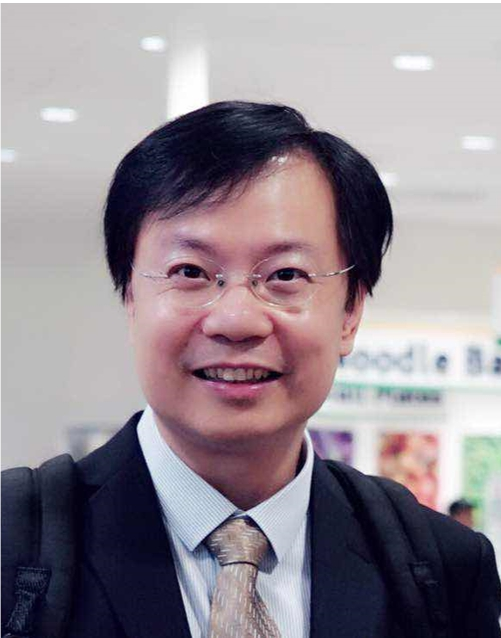
Special Title:
From AI to Generative AI: Cross-Domain Innovative Applications and Smart Healthcare
Abstract:
This keynote addresses the paradigm shift from AI to Generative AI, emphasizing its cross-domain innovative applications and transformative potential in smart healthcare. It explores the evolution of AI technologies, challenges such as hallucination, bias, and high resource demands, and emerging solutions including Retrieval-Augmented Generation, mixture-of-experts, and multi-token prediction. Case studies demonstrate how generative AI enhances industrial efficiency, automates enterprise processes, and supports medical applications such as radiology report generation and disease diagnosis. By integrating spatial intelligence, robotics, and domain-specific innovations, this talk highlights pathways for responsible, sustainable, and impactful deployment of Generative AI across sectors.
Biodata: Prof. Guo received the Ph.D. degree from the Institute of Communication Engineering, National Taiwan University, Taipei, Taiwan, in 2004. He is currently a full Professor with the Department of Electrical Engineering, and Director of Advanced Intelligent Image and Vision Technology Research Center. He has been seconded as Chief Technology Officer to Service Systems Technology Center and Information and Communications Research Laboratories of Industrial Technology Research Institute (ITRI) starting from 2022 and 2023, respectively. He was Vice Dean of the College of Electrical Engineering and Computer Science, and Director of the Innovative Business Incubation Center, Office of Research and Development. His research interests include multimedia signal processing, biometrics, computer vision, and digital halftoning. Dr. Guo has received many awards, including Best Paper Awards (IEEE ICCE-TW 2020, IS3C 2020, NSSSE 2020, ICSSE 2011 and 2020, ICS 2014, and CVGIP 2005, 2006, 2013, 2016, and 2019), Outstanding Contribution Award from Taiwan Consumer Electronics Society in 2021, Outstanding Electrical Engineering Professor Award from Chinese Institute of Electrical Engineering, Taiwan in 2016, Outstanding Research Contribution Award from Institute of System Engineering in 2017, Excellence Research Awards from his university for five times (2008, 2011, 2014, 2017, 2020, and 2022, this award is evaluated and issued every three years), Dr. Guo has been General Chair of many international conferences, e.g., IEEE ICCE 2025, APSIPA 2023, IEEE Life Science Workshop 2020, ISPACS 2019, IEEE ICCE-Berlin 2019, IWAIT 2018, and IEEE ICCE-TW 2015. He has been Technical Program Chair of many international conferences as well, e.g., IEEE ICIP 2023, IWAIT 2022, IEEE ICCE-TW 2014, IEEE ISCE 2013, and ISPACS 2012. He is/was Associate Editor of the IEEE Transactions on Image Processing, IEEE Transactions on Circuits and Systems for Video Technologies, IEEE Transactions on Multimedia, IEEE Signal Processing Letters, Information Sciences, Signal Processing, and Journal of Information Science and Engineering. He is a Fellow of IEEE,AAIA, and IET.
Prof. Hideki Tode
Osaka Metropolitan University, Japan
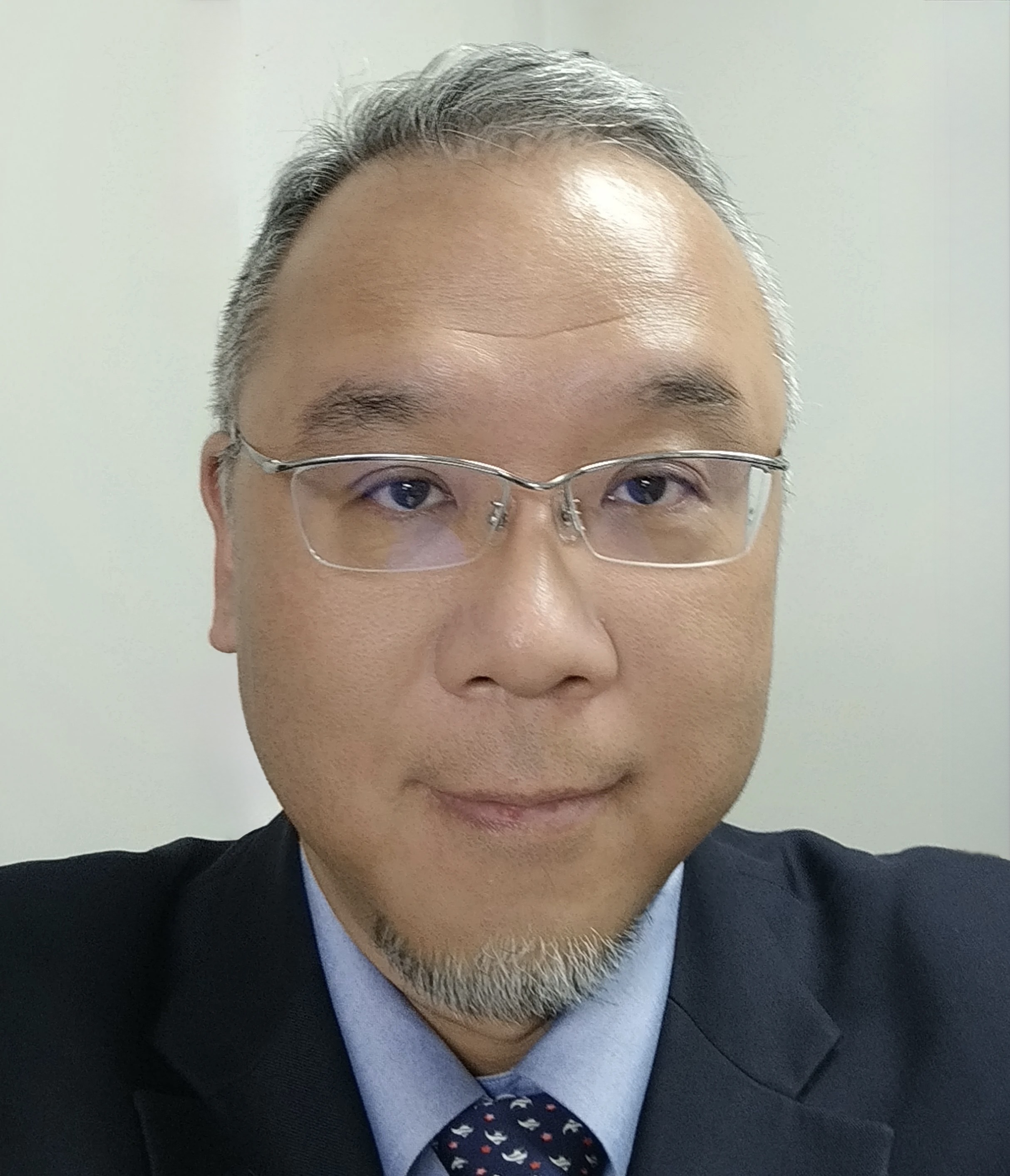
Speech Title:
Unlocking Peer-to-Peer Potential through Smart Extensions of BitTorrent
Abstract:
Peer-to-Peer (P2P) networking is a smart technology that enables swift information sharing among a large number of nodes (user hosts) by dynamically switching the roles of client and server over time and by exchanging data in parallel across space. This approach offers attractive features such as simplicity in system construction, fault tolerance, and enhanced security. In this keynote, we provide an overview of P2P technologies with a particular focus on BitTorrent.
Beyond explaining
its fundamental
operation, we
highlight several
smart application
cases, including
efficient
distribution of
content within
limited area over
wireless LANs,
multimedia
communication
applications, and
adaptation to
optical networks.
Through these
examples, we
emphasize that P2P
networking is a
highly flexible and
promising technology
with strong
potential for
further development.
Biodata: Hideki Tode received the B.E., M.E., and Ph.D. degrees in communications engineering from Osaka University in 1988, 1990, and 1997, respectively. From 1991 to 2008, he was an Assistant Professor and an Associate Professor with Osaka University. He has been a Professor with the Department of Computer Science and Intelligent Systems, Graduate School of Engineering, Osaka Prefecture University since 2008, which is renewed as Graduate School of Informatics, Osaka Metropolitan University from 2022. His current research interests include architectures and controls for optical networks, wireless LAN and sensor networks, network security, and future Internet. He is a Fellow of the Institute of Electronics Information and Communication Engineers, Japan.
Seoul National University, Korea
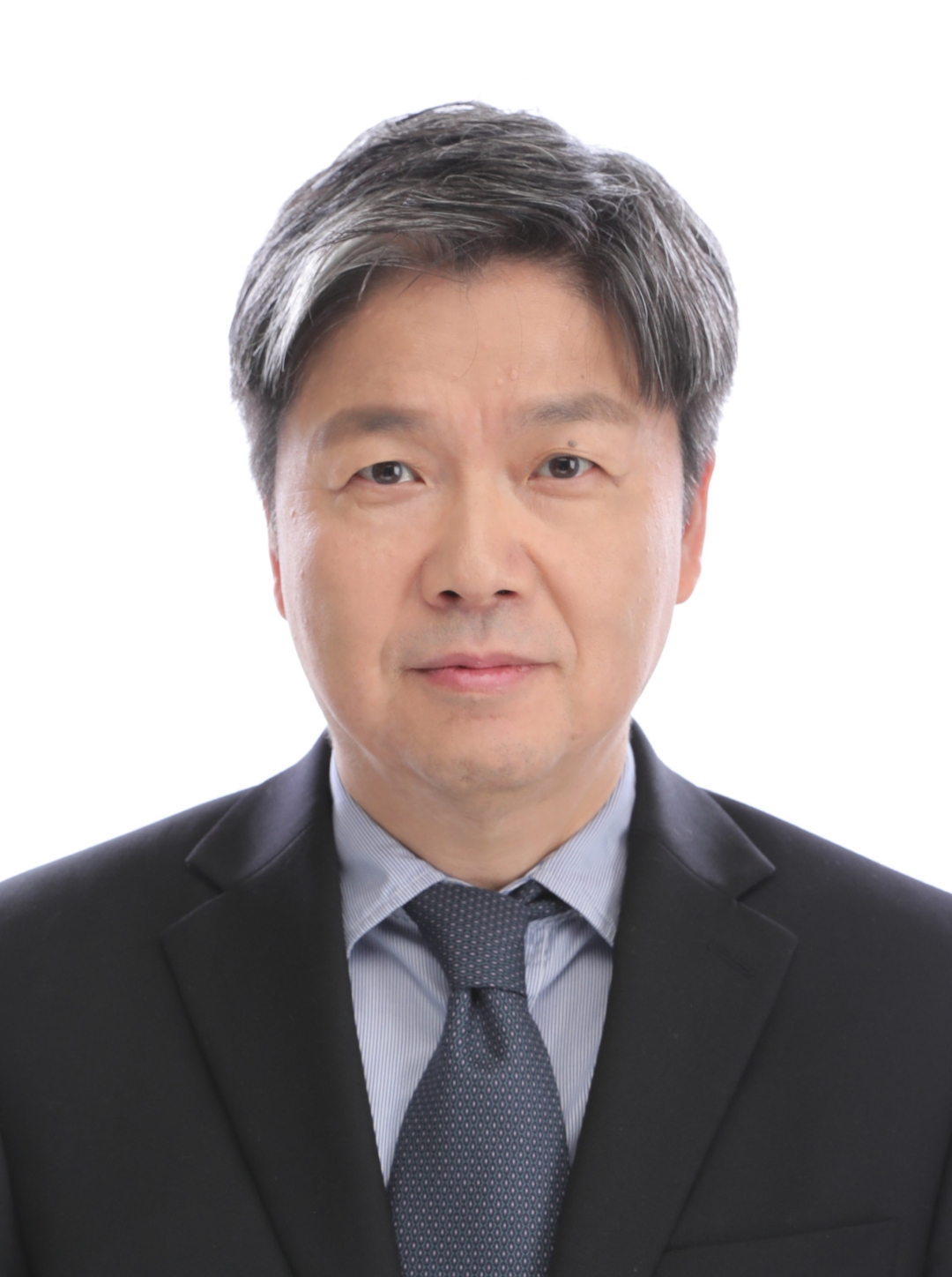
Special Title:
Semiconductor Innovations for AI: Toward a Memory-Centric Computing Paradigm
Abstract:
The rapid advancement of Artificial Intelligence (AI) has significantly increased computational complexity and power consumption, pushing traditional von Neumann architectures toward fundamental limitations. Modern AI workloads, particularly generative models, exhibit memory-bound characteristics in which data movement between processors and memory dominates latency and energy usage. As semiconductor scaling slows near the 7-nm technology node and chip development costs rise, architectural innovation has become a key driver of system performance improvement.
This presentation discusses the global competition in AI semiconductor technologies that increasingly seek compute sovereignty through in-house AI chip development. It further highlights the critical role of memory technology, as high-bandwidth data access emerges as the primary performance bottleneck.
Advanced memory solutions such as High Bandwidth Memory (HBM), Processing-in-Memory (PIM), and Compute Express Link (CXL) are introduced as promising approaches to overcome von Neumann bottlenecks. Recent developments including HBM4 base-die compute integration, DRAM-embedded PIM accelerators, and CXL-based memory expansion demonstrate the shift toward a memory-centric computing paradigm.
By examining these technology trends and industry dynamics, this work underscores the strategic importance of AI-memory innovation and explores opportunities to lead in the emerging era of memory-driven AI compute.
Biodata: Hyuk-Jae Lee received the B.S. and M.S. degrees in Electronics Engineering from Seoul National University (SNU), Seoul, South Korea, in 1987 and 1989, respectively, and the Ph.D. degree in electrical and computer engineering from Purdue University, West Lafayette, IN, USA, in 1996.
From 1996 to 1998, he was an Assistant Professor with the Department of Computer Science, Louisiana Tech University, Ruston, LA, USA. From 1998 to 2001, he was a Senior Component Design Engineer at Intel Corporation, Hillsboro, OR, USA. In 2001, he joined the School of Electrical Engineering and Computer Science, Seoul National University, where he is currently a Professor. He has been serving as an Independent Director of Samsung Electronics since March 2025, contributing to strategic guidance on system semiconductors and advanced technology innovation. Since June 2024, he has also been the Director of the Inter-university Semiconductor Research Center at SNU, leading national-level collaboration in next-generation AI semiconductor R&D.
His current research interests include energy-efficient computer architectures, AI-centric memory systems such as PIM and CXL-based disaggregated memory, deep learning accelerators, and heterogeneous SoC design for multimedia and large AI model workloads. He has published over 300 papers and holds numerous patents in these areas. He has led multiple major government and industry-funded R&D programs and has been actively engaged in semiconductor policy development and strategic advisory roles in South Korea.
Prof. Saman Halgamuge
The University of Melbourne, Australia
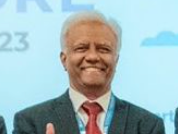
Special Title:
Attention based
Classification of
Large Images with
Small, Focussed
Regions Highlighting
the Differences
Abstract:
We explore the use of Deep learning-based methods for classifying large images where the difference between images can only be observed in small number of pixels, for example, whole-slide images (WSIs) in cancer. Most current methods require extensive annotations at the sub-image (patch) level, which is time consuming. We recently proposed a new framework named annotation-efficient segmentation and attention-based classifier (ANSAC). ANSAC requires only slide-level labels to classify WSIs. ANSAC automatically segments regions relevant to classification, eliminating the need for extensive manual annotations focussed on small number of pixels.
Biodata:
Prof Saman Halgamuge, Fellow of IEEE, IET, AAIA and NASSL received the B.Sc. Engineering degree in Electronics and Telecommunication from the University of Moratuwa, Sri Lanka, and the Dipl.-Ing and Ph.D. degrees in data engineering from the Technical University of Darmstadt, Germany. He is currently a Professor of the Department of Mechanical Engineering of the School of Electrical Mechanical and Infrastructure Engineering, The University of Melbourne and the visiting Deputy Vice Chancellor (Research and International) of SLIIT. He is listed as a top 2% most cited researcher for AI and Image Processing in the Stanford database. He was a distinguished Lecturer of IEEE Computational Intelligence Society (2018-21). He supervised 50 PhD students and 16 postdocs on AI and applications in Australia to completion. His research is funded by Australian Research Council, National Health and Medical Research Council, US DoD Biomedical Research program and international industry. His previous leadership roles include Head, School of Engineering at Australian National University and Associate Dean of the Engineering and IT Faculty of University of Melbourne. His publications can be viewed at
https://scholar.google.com.au/citations?hl=en&user=9cafqywAAAAJ&pagesize=80&view_op=list_works&sortby=pubdate
Prof. Nobuo Funabiki
Okayama University, Japan
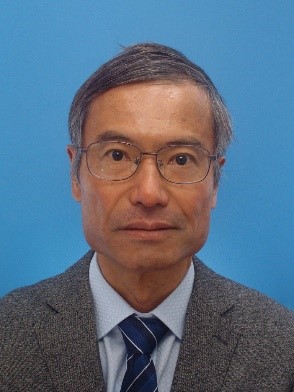
Speech Title:
Flutter Programming Learning Assistant System for Multiplatform UI Code Development
Abstract:
The Flutter framework with Dart programming allows developers to effortlessly build user interface (UI) applications for both web and mobile from a single codebase. Since utilizing a wide range of widgets in Flutter ensures consistent experiences on various devices for users, it becomes crucial in programming education by providing a unified environment for learning app development while reducing the need for platform-specific knowledge.
In this talk, first, I present a Docker-based environment for Flutter app developments across Windows, Linux, and Mac through Visual Studio Code, ensuring a unified learning experience. To support independent learning for novice students, it is essential to simplify the setup of the Flutter environment by providing user-friendly instructions and automated tools.
Then, I present an image-based UI testing method to automate UI testing by the answer code using the Flask framework. This method produces the UI image by running the answer code and compares it with the image made by the model code for the assignment using ORB and SIFT algorithms in the OpenCV library.
For their evaluations, first, we asked fourth-year bachelor and first-year master engineering students at Okayama University, Japan, to install the Docker-based environment and solve the five Flutter exercise projects of modifying the source codes by following the given instructions. Then, we applied the UI testing method to their answer codes. The results confirm the effectiveness of the proposals.
Biodata:
Nobuo Funabiki
received the B.S.
and Ph.D. degrees in
mathematical
engineering and
information physics
from the University
of Tokyo, Japan, in
1984 and 1993,
respectively. He
received the M.S.
degree in electrical
engineering from
Case Western Reserve
University, USA, in
1991. From 1984 to
1994, he was with
the System
Engineering
Division, Sumitomo
Metal Industries,
Ltd., Japan. In
1994, he joined the
Department of
Information and
Computer Sciences at
Osaka University,
Japan, as an
assistant professor,
and became an
associate professor
in 1995. He stayed
at University of
California, Santa
Barbara, in
2000-2001, as a
visiting researcher.
In 2001, he moved to
the Department of
Communication
Network Engineering
(currently,
Department of
Information and
Communication
Systems) at Okayama
University as a
professor. His
research interests
include computer
networks,
optimization
algorithms,
educational
technology, and web
application systems.
He is a member of
IEEE, IEICE, and
IPSJ. He was the
chairman at IEEE
Hiroshima section in
2015 and 2016.
Currently, he is a
vice president at
IEEE Consumer
Technology Society.
https://scholar.google.com.au/scholar?hl=en&as_sdt=0,5&as_vis=1&q="Nobuo+Funabiki"&scisbd=1
Prof. Yu Wang (IEEE Fellow)
Temple University, USA

Biodata:
Yu Wang is a
Professor in the
Department of
Computer and
Information Sciences
at Temple
University. He holds
a Ph.D. from
Illinois Institute
of Technology, an
MEng and a BEng from
Tsinghua University,
all in Computer
Science. His
research interest
includes wireless
networks, smart
sensing, and mobile
computing. He is a
recipient of Ralph
E. Powe Junior
Faculty Enhancement
Awards from Oak
Ridge Associated
Universities (2006),
Outstanding Faculty
Research Award from
University of North
Carolina at
Charlotte (2008),
Fellow of IEEE
(2018), and ACM
Distinguished Member
(2020). He has
served as Associate
Editor for IEEE
Transactions on
Parallel and
Distributed Systems,
IEEE Transactions on
Cloud Computing,
among others.
Prof. Makoto Iwasaki (IEEE Fellow)
Nagoya Institute of Technology, Japan

Biodata:
Makoto Iwasaki
received the B.S.,
M.S., and Dr. Eng.
degrees in
electrical and
computer engineering
from Nagoya
Institute of
Technology, Nagoya,
Japan, in 1986,
1988, and 1991,
respectively. He is
currently a
Professor at the
Department of
Electrical and
Mechanical
Engineering, Nagoya
Institute of
Technology.
As professional
contributions of the
IEEE, he has
participated in
various organizing
services, such as, a
Co-Editors-in-Chief
for IEEE
Transactions on
Industrial
Electronics from
2016 to 2022, a Vice
President for
Planning and
Development in term
of 2018 to 2021,
etc. He is IEEE
fellow class 2015
for "contributions
to fast and precise
positioning in
motion controller
design".
He has received many
academic,
foundation, and
government awards,
like the Best Paper
and Technical Awards
of IEE Japan, the
Nagamori Award, the
Ichimura Prize, and
the Commendation for
Science and
Technology by the
Japanese Minister of
Education,
respectively. He is
also a fellow of IEE
Japan, and a member
of Science Council
of Japan.
His current research
interests are the
applications of
control theories to
linear/nonlinear
modeling and
precision
positioning, through
various
collaborative
research activities
with industries.
New Jersey Institute of Technology, USA

Biodata: Nirwan Ansari, Distinguished Professor of Electrical and Computer Engineering at the New Jersey Institute of Technology (NJIT), received his Ph.D. from Purdue University, MSEE from the University of Michigan, and BSEE (summa cum laude with a perfect GPA) from NJIT. He is a Fellow of the Institute of Electrical and Electronics Engineers (IEEE) as well as Fellow of National Academy of Inventors (NAI).
He authored Green Mobile Networks: A Networking Perspective (Wiley-IEEE, 2017) with T. Han, and co-authored two other books. He has also (co-)authored more than 600 technical publications, over 340 published in widely cited journals/magazines. He has guest-edited a number of special issues covering various emerging topics in communications and networking. He is Editor-in-Chief of IEEE Wireless Communications and has also served on the editorial/advisory board of over ten journals. His current research focuses on green communications and networking, cloud computing, drone-assisted networking, and various aspects of broadband networks.
He was elected to serve in the IEEE Communications Society (ComSoc) Board of Governors as a member-at-large, has chaired some ComSoc technical and steering committees, is current Director of ComSoc Educational Services Board, has been serving in many committees such as the IEEE Fellow Committee, and has been actively organizing numerous IEEE International Conferences/Symposia/Workshops. Some of his recognitions include several excellence in teaching awards, a few best paper awards, NCE Excellence in Research Award, several ComSoc TC technical recognition awards, NJ Inventors Hall of Fame Inventor of the Year Award, Thomas Alva Edison Patent Award, Purdue University Outstanding Electrical and Computer Engineering Award, NCE 100 Medal, NJIT Excellence in Research Prize and Medal, and designation as a COMSOC Distinguished Lecturer. He has also been granted more than 40 U.S. patents.
Prof. Honghai Liu (IEEE & IET Fellow)
HIT Shenzhen, China

Biodata:
Honghai Liu received his Ph.D from King’s College, University London, UK. He is a Professor at Haribin Institue of Technology, Shenzhen, China. He previously held research appointments at King’s College London, University of Aberdeen, and project leader appointments in large-scale industrial control and system integration industry. He is interested in sensing and understanding for medical systems and applications with an emphasis on approaches that could make contribution to the intelligent connection of perception to action using contextual information. He has authored/co-authored more than 200 per-reviewed journals and conference papers. He is an IET Fellow and IEEE Fellow.
Prof. Meng Joo Er
Dalian Maritime University, China

Biodata:
Meng Joo Er is currently Changjiang Scholar Distinguished Professor and Director of Institute on Artificial Intelligence and Marine Robotics, School of Marine Electrical Engineering, Dalian Maritime University (DMU), China. He was a Professor in the School of Electrical and Electronic Engineering, Nanyang Technological University, Singapore from 1992-2020. He served as the Founding Director of Renaissance Engineering Programme and an elected member of the NTU Advisory Board and from 2009 to 2012. He also served as a member of the NTU Senate Steering Committee from 2010 to 2012.
His research interests include Artificial Intelligence, Machine Learning, Fuzzy Neural Systems, Robotics and Automation, Object Detection, Intelligent Control and Marine Engineering. He has authored 6 books,
21 book chapters and more than 500 refereed journal and conference papers in his research areas of interest achieving a total citation count of more than 13,700 and a h-index of 57 based on Google Scholar. He is ranked first in Google citation count and h-indeProfessor Er was bestowed the Web of Science Top 1 % Best Cited Paper and the Elsevier Top 20 Best Cited Paper Award in 2007 and 2008, respectively. In recognition of the significant and impactful contributions to Singapore’s development by his research projects, Professor Er presented the Institution of Engineers, Singapore (IES) Prestigious Engineering Achievement Award twice (2011 and 2015). He is also the only dual winner in Singapore IES Prestigious Publication Award in Application (1996) and IES Prestigious Publication Award in Theory (2001). He was bestowed the title of Amity Researcher in 2018 for his outstanding and significant contributions in Robotics and Automation.
He received the Teacher of the Year Award for the School of EEE in 1999, School of EEE Year 2 Teaching Excellence Award in 2008, the Most Zealous Professor of the Year Award in 2009 and the Outstanding Mentor Award in 2014. He also received the Best Session Presentation Award at the World Congress on Computational Intelligence in 2006, Best Paper Award (First Prize) at the International Automatic Control Conference 2016, Best Presentation Award at the IEEE-sponsored International Conference on Intelligent Control, Power and Instrumentation (ICICPI) 2016, Best Presentation Award at the IEEE-sponsored International Conference on Intelligent Autonomous System (ICoIAS) thrice (ICoIAS’2018, ICoIAS’2019 and ICoIAS’2021) and the Best Presentation Award at the 2021 6th International Conference on Automation, Control and Robotics Engineering (CARCE). On top of this, Professor Er has been invited to deliver more than 100 keynote speeches and invited talks overseas and has won more than 70 awards at international and local competitions.
Currently, Professor Er serves as the Editor-in-Chief of 2 international journals, namely Transactions on Machine Learning and Artificial Intelligence and the International Journal of Electrical and Electronic Engineering and Telecommunications. He also serves an Associate Editor of IEEE Transactions on Systems, Man and Cybernetics-Systems, IEEE Transactions on Fuzzy Systems, Sensors, Asian Journal of Control, Sensors, ETRI Journal and International Journal of Modelling, Simulation and Scientific Computing.
Professor Er has been active in professional bodies. Under his leadership, the IEEE Computational Intelligence Society (CIS) Singapore Chapter won the CIS Outstanding Chapter Award in 2012 creating history of making CIS Singapore Chapter becoming the first Asian CIS Chapter to win such prestigious award. In recognition of his outstanding contributions to professional bodies, he was bestowed the IEEE Outstanding Volunteer Award (Singapore Section) and the IES Silver Medal in 2011. He was also presented the Distinguished Service Award by the Institution of Engineering Technologists (IET), Singapore Branch Management in recognition of his services as Chairman of the IET Branch from 2002 to 2004.
He served as Chair of the Technical Track on Artificial Intelligence and Digitization, World Engineers Summit held from 10 to 12 October 2021 in Singapore. He was first elected as a member of the IES Council in 2004 and has served as Chair of the IES Electrical and Computer Engineering Technical Committee since then. Currently, he serves as General Chair of the 5th International Conference on Intelligent Autonomous Systems (ICoIAS’2022), a premium internationally conference which is technically sponsored by the IEEE Computational Intelligence Society and the IES.
He is listed in Who’s Who in Engineering, Singapore, Edition 2013.
Prof. Jiebo Luo (SPIE Fellow, IEEE Fellow, IAPR Fellow, AAAI Fellow, ACM Fellow, IAPR Fellow, High Index 99)
University of Rochester, USA

Biodata: Jiebo Luo is a Professor of Computer Science at the University of Rochester which he joined in 2011 after a prolific career of fifteen years at Kodak Research Laboratories. He has authored over 500 technical papers and holds over 90 U.S. patents. His research interests include computer vision, NLP, machine learning, data mining, computational social science, and digital health. He has been involved in numerous technical conferences, including serving as program co-chair of ACM Multimedia 2010, IEEE CVPR 2012, ACM ICMR 2016, and IEEE ICIP 2017, and general co-chair of ACM Multimedia 2018. He has served on the editorial boards of the IEEE Transactions on Pattern Analysis and Machine Intelligence (TPAMI), IEEE Transactions on Multimedia (TMM), IEEE Transactions on Circuits and Systems for Video Technology (TCSVT), IEEE Transactions on Big Data (TBD), ACM Transactions on Intelligent Systems and Technology (TIST), Pattern Recognition, Knowledge and Information Systems (KAIS), Machine Vision and Applications, and Intelligent Medicine. He is the current Editor-in-Chief of the IEEE Transactions on Multimedia. Professor Luo is a Fellow of ACM, AAAI, IEEE, SPIE, and IAPR.
(Getting
more)
Prof. Fuchun Sun (IEEE Fellow, CAAI Fellow)
Tsinghua University, China

Biodata:
Dr. Fuchun Sun is professor of Department of Computer Science and Technology, President of Academic Committee of the Department, Tsinghua University, and deputy director of State Key Lab. of Intelligent Technology & Systems, Beijing, China. He serves as Vice Chairman of Chinese Association for Artificial Intelligence and Executive Director of Chinese Association for Automation. His research interests include robotic perception and skill learning,
Cross-modal Learning and intelligent control. He has won the Champion of Autonomous Grasp Challenges in IROS2016 and IROS 2019. He is elected as IEEE Fellow and CAAI Fellow in 2019, CAA Fellow in 2020.
Dr. Sun is the recipient of the excellent Doctoral Dissertation Prize of China in 2000 by MOE of China and the Choon-Gang Academic Award by Korea in 2003, and was recognized as a Distinguished Young Scholar in 2006 by the Natural Science Foundation of China. He served as the EIC of the Journal of Cognitive Computation and Systems, and associated editors of IEEE Trans. on Neural Networks and Learning Systems during 2006-2010, IEEE Trans. On Fuzzy Systems since 2011, IEEE Trans. on Cognitive and Development Systems since 2018 and IEEE Trans. on Systems, Man and Cybernetics: Systems since 2015.
Prof. Matthias Rätsch (Head of the ‘Vision Systems for intelligent Robots’ (ViSiR))
Reutlingen University, Germany

Biodata:
Prof. Matthias Rätsch is a professor at the Reutlingen University for Image Understanding, Artificial Intelligence and Interactive Mobile Robotics. In 2008, he received his Ph.D. degree in the Graphics and Vision Research Group (GraVis) at the University of Basel, Switzerland in 3DMM Face Analysis. His research interests are in the fields of Artificial Intelligence, Deep Learning, Image Understanding, Autonomous Driving, Human-Robot-Interaction, Humanoid Robots and Bionic Grasping.
He is the head of the RoboCup team RT-Lions. The team could win several international competitions (World Champion in Graz 2009, Iran Master 2011, German Master 2009, Vice World Champion in Singapore 2010). After changing to the RoboCup@Home League the team gained the 4th place at the German Open, won the Portuguese Robotics Open and SICK Robot Day. The team was qualified with 35 teams at the World Championship in Nagoya, Japan, 2017, obtaining the 8th place and 2019 in Sydney, Australia, obtaining the 5h place. The team is qualified for 2021 at World Championship in Bordeaux, France.
Prof. Rätsch has been a member of the program committee and a session chair for several international conferences and was invited for several speeches including keynote, seminal and training in Artificial Intelligence, Face Analysis and Robot Vision for academic and industrial sectors.
Prof. Rätsch and his group has published more than 50 international academic research papers and journals, like at the top-rank IEEE Transactions on Image Processing journal or at the SIGGRAPH conference. His publications were recently honored with an award at the IEEE International Conference on Image Processing (ICIP), at the International Conference on Systems, Control and Communications (ICSCC), the Informatics Inside Conference for Human-Centered Computing, and at the IEEE Intelligent Data Acquisition and Advanced Computing Systems Journal. His working group ViSiR could win the Otto-Johansen-Price.
Prof. Rätsch leaded the with 1.1 Mill EUR founded interdisciplinary project “KollRo 4.0” (BMBF, BOSCH) and current two ZIM-projects with 0,4 Mill EUR in the field of Human-Robot-Collaboration and was a member of other funded industrial projects like RTMO (BMBF), GES 3D (BMBF), Face-HMI (SAB, COG), and I-Search (BMBF).
Prof. LING Tok Wang (ER Fellow, IEEE Senior Life Member)
National University of Singapore, Singapore

Biodata: Dr. LING Tok Wang is a professor of the Department of Computer Science, School of Computing at the National University of Singapore. He was the Head of IT Division, Deputy Head of the Department of Information Systems and Computer Science, and Vice Dean of the School of Computing of the University. Before joining the University as a lecturer in 1979, he was a scientific staff at Bell Northern Research, Ottawa, Canada. He received his Ph.D. and M.Math., both in Computer Science, from University of Waterloo (Canada) and B.Sc.(1st class Hons) in Mathematics from Nanyang University (Singapore). His research interests include Data Modeling, Entity-Relationship Approach, Object-Oriented Data Model, Normalization Theory, Logic and Database, Integrity Constraint Checking, Semi-Structured Data Model, XML Twig Pattern Query Processing, ORA-semantics based XML and Relational Database Keyword Query Processing. He has published more than 230 international journal/conference papers and chapters in books, all in database research areas. He also co-edited 13 conference and workshop proceedings, co-authored one book, and edited one book. He is an ER Fellow, an ACM Distinguished Scientist, IEEE Senior Life Member, and Senior Member of Singapore Computer Society. He received the ACM Recognition of Service Award in 2007, the DASFAA Outstanding Contributions Award in 2010, and the Peter P. Chen Award in 2011.
Prof. Sergei Gorlatch
University of Muenster, Germany

Biodata: Dr. Sergei Gorlatch has been Full Professor of Computer Science at the University of Muenster (Germany) since 2003. Earlier he was Associate Professor at the Technical University of Berlin, Assistant Professor at the University of Passau, and Humboldt Research Fellow at the Technical University of Munich, all in Germany. Prof. Gorlatch has about 200 peer-reviewed publications in renowned international books, journals and conferences. He was principal investigator in several international research and development projects in the field of parallel, distributed, Grid and Cloud algorithms, networking and computing, as well as e-Learning, funded by the European Commission and by German national bodies. Among his recent achievements in the area of communications and future Internet is the novel Real-Time Framework (www.real-time-framework.com) developed in his group as a platform for high-level development of real-time, highly interactive applications for entertainment. In the area of networking, his group has been recently working in the pan-European project OFERTIE on an application-oriented Quality of Service approach for emerging Software-Defined Networks (SDN).
Plenary Speakers
Prof. Xiaochun Cheng
Middlesex University, UK

Biodata: Dr. Xiaochun Cheng (X.Cheng@mdx.ac.uk) received the B.Eng. degree in computer software engineering and the Ph.D. degree in computer science from Jilin University, in 1992 and 1996, respectively. He has been with the Computer Science EU Project Coordinator, Middlesex University, since 2012. He is currently a member of IEEE SMC Technical Committee on Enterprise Information Systems, IEEE SMC Technical Committee on Computational Intelligence, IEEE SMC Technical Committee on Cognitive Computing, IEEE SMC Technical Committee on Intelligent Internet Systems, IEEE Communications Society Communications and Information Security Technical Committee, BCS Information Security Specialist Group, BCS Cybercrime Forensics Specialist Group, and BCS Artificial Intelligence Specialist Group.
Prof. Qinmin Yang
Zhejiang University, China

Biodata: to be announced soon
Invite Speakers
Assoc. Prof. Su-Cheng Haw
Multimedia University, Malaysia

Biodata: Su-Cheng Haw is Associate Professor at Faculty of Computing and Informatics, Multimedia University, where she leads several funded research. She is also the research center chairperson of Center for Web Engineering (CWE), which is multidisciplinary and encompasses diversify research from modeling and tools, implementation, testing and evaluation, and application in the areas such as Databases and Information Retrieval, Service Oriented Computing, IoT, e-Learning, and Statistical Analysis. Her research interests include XML databases, data warehousing, semantic web & ontology, data modeling, and recommender system. She has published around 120 articles in reputable journals and conferences. She serves in several editorial boards and participated as technical committee member and reviewer boards for several international conferences and journals. Besides, she also received several ad-hoc invitations to review journal/conference articles. She is currently a member of IEEE and MBOT professional membership.
Assoc. Prof. Dr. Yasamin Eslami
Ecole Centrale de Nantes, France
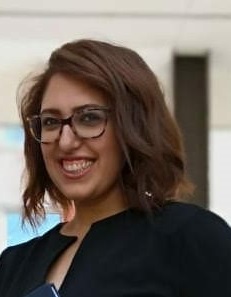
Biodata: Yasamin Eslami is an associate professor at LS2N (Laboratoire des Sciences du Numérique de Nantes), Ecole Centrale de Nantes, Nantes, France. There, she is more focused on the topic of sustainability, sustainable manufacturing, circularity and circular manufacturing as a member of the Industrial engineering team. In addition to her main field of research, as a part of European projects, she has done research on different concepts like Manufacturing as a Service, resilience, ontology creation, knowledge representation, enterprises competences and cyber physical systems. On the grounds of her PhD thesis, she has done full time research on concept of sustainability, sustainable manufacturing, and its assessment in manufacturing enterprises. To that point, she has earned experience in sustainability assessment tools, key performance indicators and indicators study especially regarding the manufacturing enterprises active in the 4th industrial revolution paradigm.